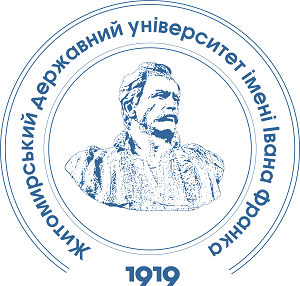SUSTAINABLE DEVELOPMENT OF THE CHEMICAL INDUSTRY THROUGH INNOVATIVE APPROACHES TO WASTE PROCESSING
DOI:
https://doi.org/10.32782/naturaljournal.11.2025.28Keywords:
waste management, economic efficiency, chemical industry, polymer processing, sustainable development, reduction of environmental burdenAbstract
The modern chemical industry faces a number of challenges, among which the key ones areincreasing the efficiency of resource use, minimizing waste generation and implementing waste processing technologies. In the context of Ukraine’s integration into the European economic space,the implementation of the principles of sustainable development and circular economy, which meets international standards and environmental requirements, is becoming relevant.The purpose of this study was to determine the effectiveness of implementing waste processing technologies in the production processes of chemical industry enterprises. Particular attention was paid to the analysis of the economic and environmental benefits of using secondary raw materials, as well as assessing the possibilities of its integration into production cycles.The research methodology was based on the use of quantitative analysis, a comparativeapproach and system analysis. During the work, the dynamics of waste generation, the efficiencyof their utilization, the profitability of using secondary raw materials and the economic benefitof the implemented solutions were assessed. The representativeness of the data used ensuredthe reliability of the conclusions and the possibility of adapting the results for other enterprises inthe industry.The results of the study showed that the implementation of innovative approaches to waste management allowed to significantly reduce their volumes - by 20.23% compared to previous years. The maximum utilization rates (coefficient 5.80) confirmed the effectiveness of the proposed technologies. The economic analysis showed a significant benefit from the processing of polymer materials, which allows to reduce the costs of primary raw materials. In particular, the processing of polypropylene and polyethylene provided savings of 961 and 1025 euros per ton, respectively. The profitability of these processes exceeded 4 times, which emphasizes the financial feasibility of their implementation.The scientific novelty of the study lies in establishing the relationship between economic efficiency indicators and the volumes of waste utilization. The study also identified key factors that affectthe success of the implementation of processing technologies.The practical significance of the results is manifested in the possibility of applying the developed solutions at chemical industry enterprises. The proposed approaches contribute to the optimizationof resources, reduction of waste generation and reduction of environmental burden. This allows enterprises to simultaneously increase their economic efficiency and environmental responsibility, which are key conditions for sustainable development.The results obtained demonstrate that the introduction of innovative technologies in the field of waste processing is an effective tool for ensuring economic and environmental sustainability. The experience and conclusions of the study can be used to develop sustainable development strategies in the chemical industry, contributing to its adaptation to modern challenges and strengthening competitive positions in the international market.
References
Про управління відходами : Закон України від 20.06.2022 [Електронний ресурс]. URL: https://zakon.rada.gov.ua/go/2320-20 (дата звернення 24.01.2025).
Овдіюк О.М., Василенко О.М. Еколого-економічний аспект ефективності управління утилізації твердих полімерних відходів. Економіка та суспільство. 2024. № 69 [Електронний ресурс]. URL: https://economyandsociety.in.ua/index.php/journal/article/view/5119 (дата звернення 08.01.2025).
Directive 2008/98/EC on waste (EU, 2008) [Electronic resource]. URL: https://eur-lex.europa. eu/legal-content/EN/TXT/?uri=CELEX:32008L0098 (access date 25.01.2025).
FPS. Офіційний сайт [Електронний ресурс]. URL: http://www.fps.com (дата звернення 25.01.2025).
Geissdoerfer M., Savaget P., Bocken N.M.P., Hultink E.J. The Circular Economy – A New Sustainability Paradigm? Journal of Cleaner Production. 2017. Vol. 143. P. 757–768. https://doi.org/10.1016/j.jclepro.2016.12.048.
Ghisellini P., Cialani C., Ulgiati S. A review on circular economy: The expected transition to a balanced interplay of environmental and economic systems. Journal of Cleaner Production. 2016. Vol. 114. P. 11–32. https://doi.org10.1016/j.jclepro.2015.09.007.
Kirchherr J., Reike D., Hekkert M. Conceptualizing the circular economy: An analysis of 114 definitions. Resources, Conservation and Recycling. 2017. Vol. 127. P. 221–232. https://doi.org10.1016/j.resconrec.2017.09.005.
Korhonen J., Honkasalo A., Seppälä J. Circular Economy: The Concept and its Limitations. Ecological Economics. 2018. Vol. 143. P. 37–46. https://doi.org10.1016/j.ecolecon.2017.06.041.
Stahel W.R. The circular economy. Nature. 2016. Vol. 531. № 7595. P. 435–438. https://doi.org10.1038/531435a.
The European Green Deal. Communication from the Commission to the European Parliament, the Council, the European Economic and Social Committee and the Committee of the Regions. Brussels, 11.12.2019, COM (2019) 640 final [Electronic resource]. URL: https://eur-lex.europa.eu/legal-content/EN/TXT/?uri=CELEX:52019D C0640 (access date 25.01.2025).






